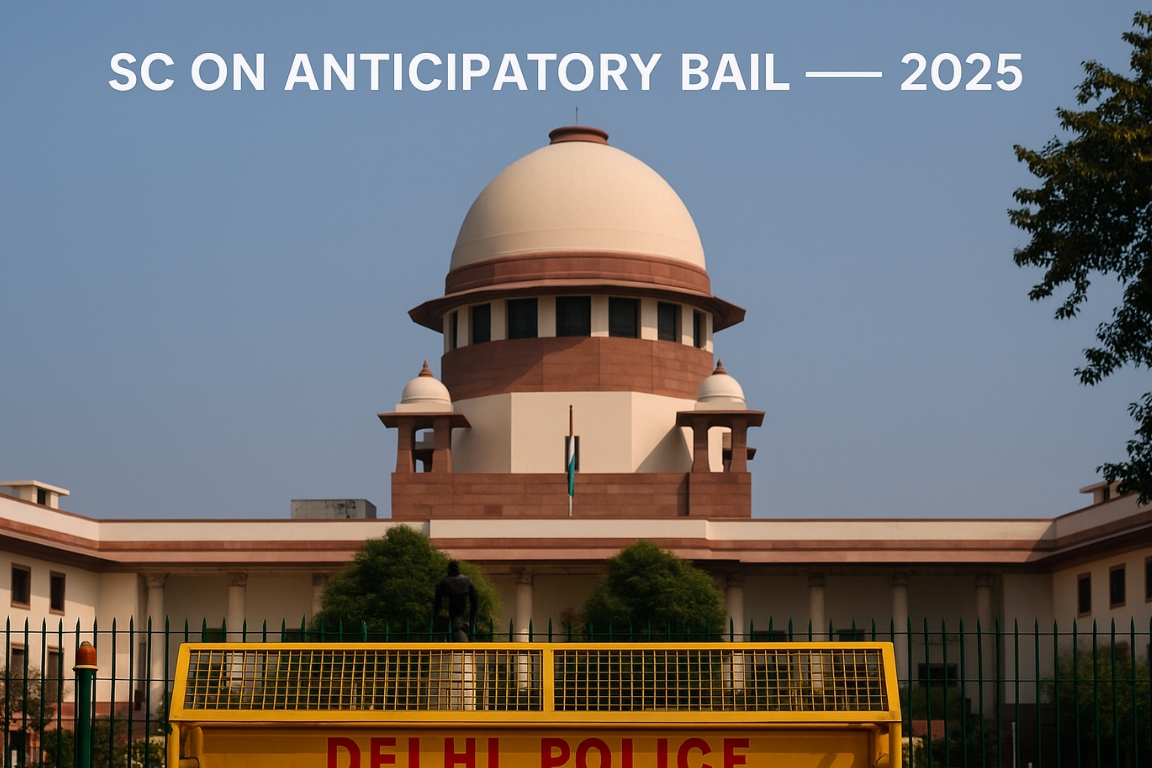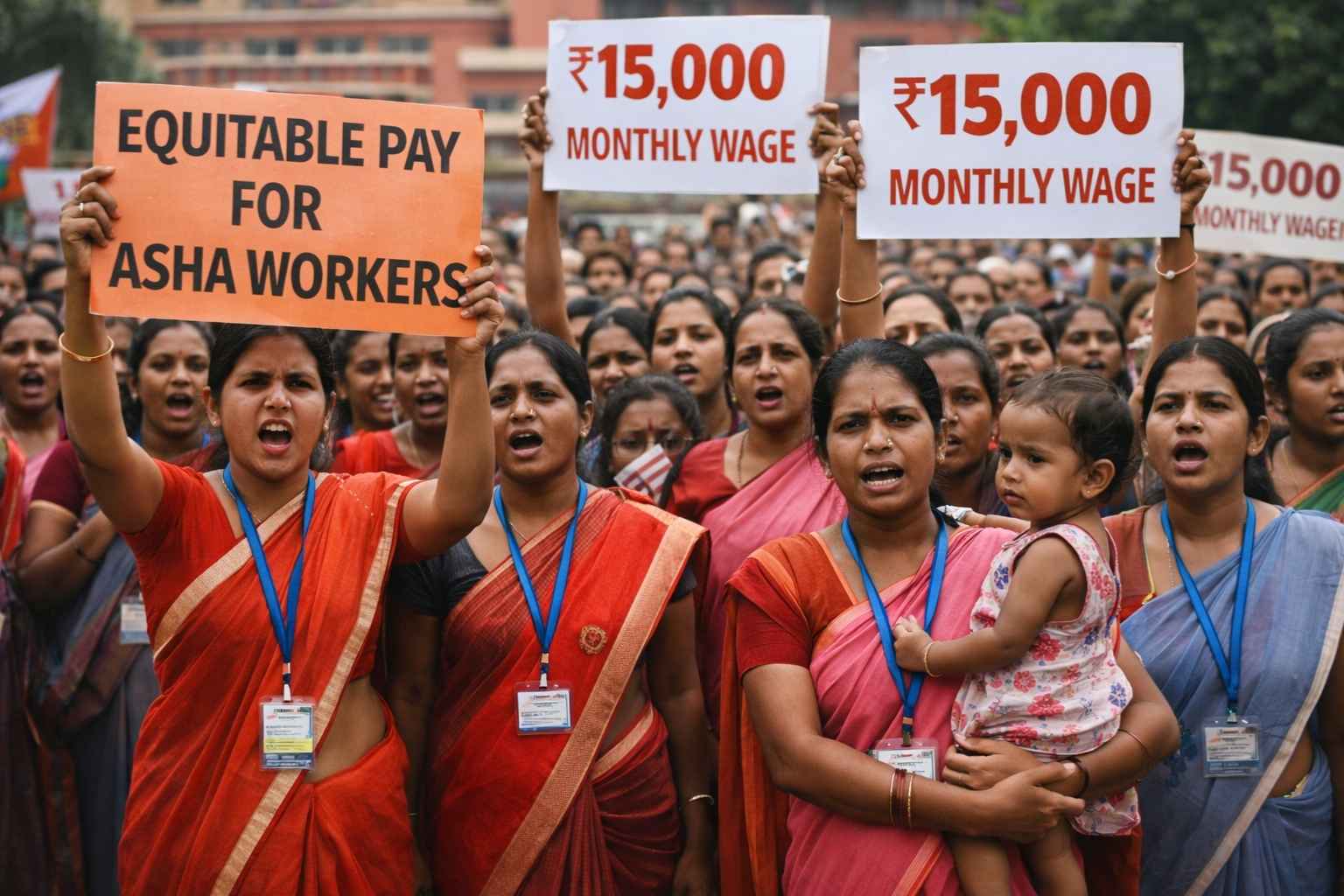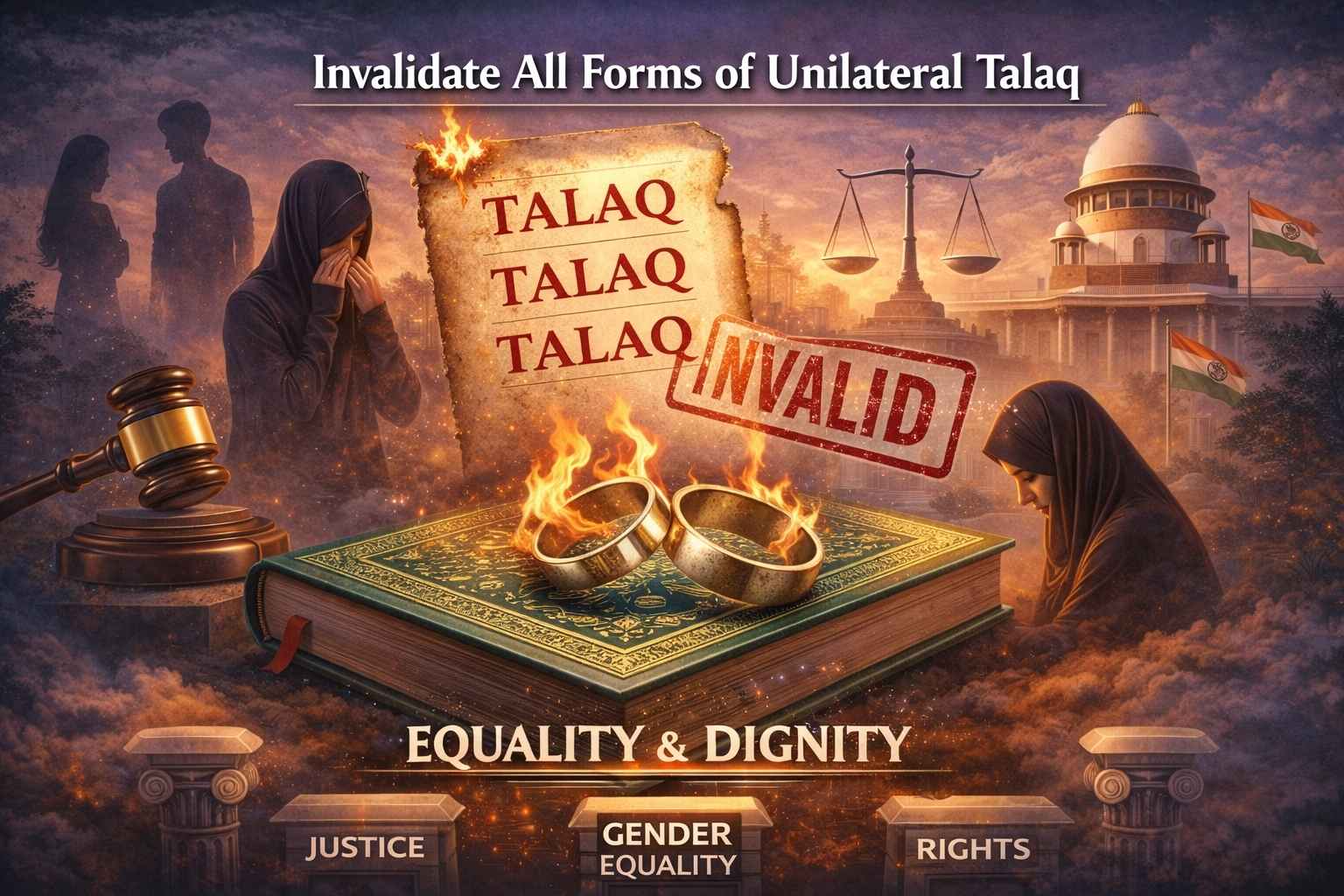Supreme Court cancelled the anticipatory bail granted by the Bombay High Court in a caste-related offence, stressing that Section 18 of the SC/ST (Prevention of Atrocities) Act, 1989 strictly prohibits anticipatory bail in such cases.
Background of the Case
- Incident (Nov 2024): A Scheduled Caste complainant alleged that he and his family were assaulted, abused with caste slurs, and threatened after refusing to vote as directed in Assembly elections.
- Lower Court’s View: The Additional Sessions Judge rejected anticipatory bail, citing casteist intent and corroboration.
- High Court’s Order: The Bombay High Court (Aurangabad Bench) later granted anticipatory bail, calling the case exaggerated and politically motivated.
- Supreme Court’s Intervention: On appeal, the SC struck down the High Court order, calling it a “manifest error and jurisdictional illegality.”

Why Anticipatory Bail is Barred under the SC/ST Act
- Anticipatory bail is the legal protection granted by a court to a person so that they are not arrested if they are likely to be accused of a crime.
- Section 18 of the Act excludes the use of anticipatory bail provisions (CrPC 438 / BNSS 482) for atrocities cases.
- This bar is meant to: Prevent intimidation of victims and witnesses and to ensure proper investigation and prosecution.
- The SC relied on past precedents:
- State of M.P. vs Ram Krishna Balothia (1995)
- Vilas Pandurang Pawar vs State of Maharashtra (2012)
- Prathvi Raj Chauhan vs Union of India (2020)
- The Court held that this bar is constitutionally valid and does not violate Article 14 (Equality) or Article 21 (Right to Life and Liberty).
Key Observations of the Court
- Prima Facie Test: Courts should only see if there is a basic case against the accused, not go into a detailed trial while deciding bail.
- Public View Requirement: Using caste abuses in a public place comes under Section 3(1)(r) of the SC/ST Act.
- Electoral Retaliation: If attacks are linked to voting choices, Section 3(1)(o) applies, which punishes pressure or violence against SC/ST voters.
- Evidence Support: Witness accounts, medical reports, and recovery of weapons gave strong backing to the prosecution.
- High Court’s Mistake: The HC wrongly treated the FIR as politically motivated and went beyond its limited powers in a bail hearing.
Significance of the Judgment
- Reinforces that the SC/ST Act is a substantive protection mechanism for Dalits and tribal communities, not just a procedural law.
- Protects victims from retaliation, intimidation, and coercion during legal proceedings.
- Prevents dilution of legislative intent behind Section 18 by reminding courts to strictly follow the prima facie standard.
- Recognises that caste crimes linked to electoral choices threaten not just individuals but also democratic participation and social justice.
Way Forward
- Courts must avoid downplaying allegations of caste crimes at the bail stage.
- Need for strict adherence to Section 18 to maintain victim confidence.
- Greater awareness among lower courts to prevent errors in applying the bar on anticipatory bail.
PROVISIONS OF THE SC/ST (PREVENTION OF ATROCITIES) ACT, 1989
To prevent atrocities and hate crimes against Scheduled Castes (SC) and Scheduled Tribes (ST). Ensures social justice and protection for these communities.
Key Provisions:
- Definition of Atrocities: Covers offenses like physical harm, social discrimination, sexual abuse, property damage, and humiliation against SC/ST persons.
- Special Courts: Offenses under the Act are tried in designated courts to ensure speedy justice.
- Stringent Punishments: Provides strict penalties, including imprisonment, for offenders.
- Preventive Measures: Police and authorities must take proactive steps to prevent atrocities, including regular monitoring.
- No Compromise: Cases cannot be withdrawn without government permission.
- Rights of Victims: Victims have the right to legal aid, compensation, and protection during trial.
- Reservation of Posts in Investigation: Certain officers from SC/ST communities can be involved in investigation to ensure fairness.
Conclusion
This ruling strengthens accountability under the SC/ST Act and underscores that the rule of law must protect the dignity of the most marginalised, ensuring their right to justice and equal participation in democracy.





